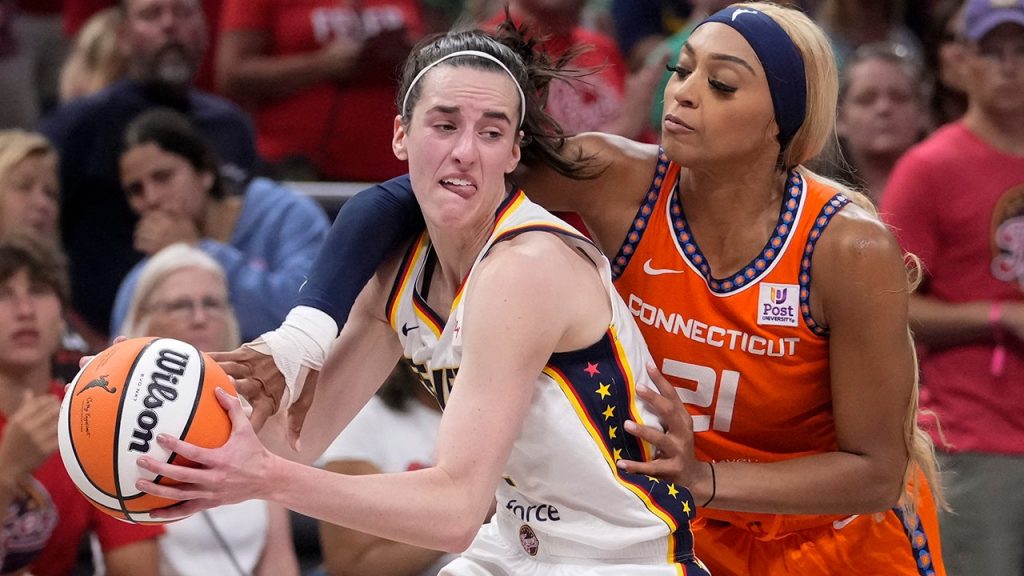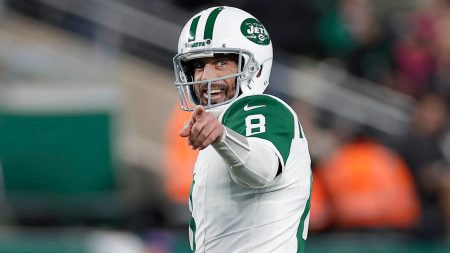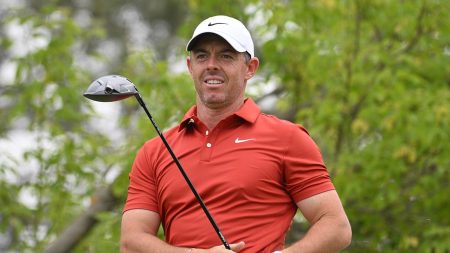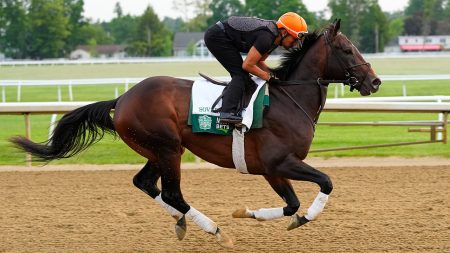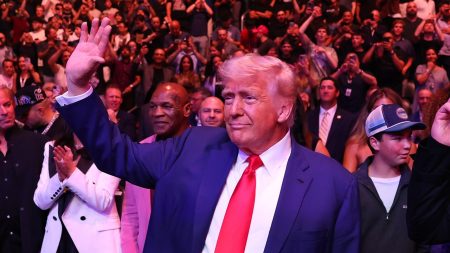The recent revelation of Caitlin Clark’s stalker has sent shockwaves through the women’s basketball community, sparking a much-needed conversation about player safety and security in the face of escalating threats and privacy breaches. The incident, coming just a month after a similar case involving UConn star Paige Bueckers, highlights a growing concern among female athletes regarding their vulnerability to harassment and stalking, both online and in the physical world. This heightened awareness has prompted players to share their own experiences and fears, emphasizing the urgent need for enhanced security measures and proactive strategies to protect athletes from these distressing situations.
The discussions surrounding player safety gained significant traction during the opening week of the Unrivaled, a new 3-on-3 basketball league featuring WNBA players. Several prominent athletes, including DiJonai Carrington, Breanna Stewart, Aliyah Boston, and Napheesa Collier, spoke openly about the issue, expressing their anxieties and advocating for greater protection. Carrington, who famously gave Clark a black eye during a playoff game, revealed that she herself has been subjected to cyber threats and must remain vigilant about her safety in public spaces. She acknowledged the unfortunate reality that such incidents are likely to increase as the sport gains popularity, underscoring the need for robust security protocols and holding perpetrators accountable.
Stewart, a star player for the New York Liberty, shared the precautions she and other players take to protect their privacy, particularly regarding social media usage. She stressed the importance of avoiding real-time posts that could inadvertently reveal their location to potential stalkers. This heightened awareness extends to Stewart’s personal life as well, as she and her wife were targeted with threatening emails during the WNBA Finals. The incident serves as a stark reminder of the pervasiveness of these threats and the need for constant vigilance.
Clark’s teammate, Aliyah Boston, described the situation as “super scary,” expressing empathy for all players who have been subjected to such ordeals. She emphasized the importance of a strong support system, including family, team staff, and security personnel, who are actively working to ensure player safety and respond swiftly to any potential threats. This collaborative approach is crucial in creating a secure environment for athletes and addressing their concerns promptly and effectively.
The issue of player safety has prompted the Unrivaled league to take proactive measures, including holding meetings with players to discuss security protocols and address their concerns. Napheesa Collier, a co-founder of the league, acknowledged the increased vulnerability of athletes due to their public profiles and emphasized the league’s commitment to providing a safe and secure environment for its players. This proactive approach is a positive step towards addressing the growing concerns within the women’s basketball community.
The details of Clark’s case further underscore the gravity of the situation. Michael Lewis, the alleged stalker, was arrested and charged with stalking and threatening sexual battery or death. He reportedly sent Clark sexually explicit messages, drove by her house multiple times, and discussed attending a Fever game and sitting behind the bench. These actions demonstrate the escalating nature of these threats and the potential for real-world harm. The Marion County Prosecutor, Ryan Mears, commended Clark for her courage in coming forward and setting an example for other women who may be facing similar situations. He emphasized the importance of supporting victims and holding perpetrators accountable to ensure the safety and well-being of all individuals.
The incidents involving Clark, Bueckers, and other players highlight the urgent need for a comprehensive approach to player safety within women’s basketball. This includes enhancing security measures at games and team facilities, providing players with resources and support for dealing with harassment and threats, and educating fans and the public about the importance of respecting athletes’ privacy and personal boundaries. Furthermore, social media platforms must take a more active role in combating online harassment and stalking, providing users with better tools to report and block unwanted interactions. By working together, the league, teams, players, law enforcement, and social media platforms can create a safer and more secure environment for female athletes, allowing them to focus on their passion for the game without fear of harassment or harm.




